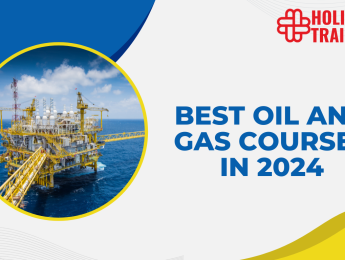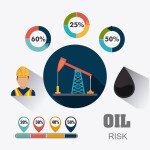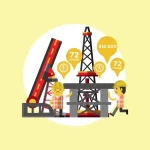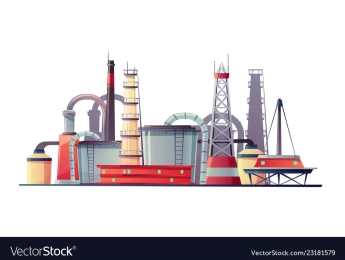Introduction
In the dynamic oil and gas industry, continuous professional development is crucial for staying ahead in a competitive field. Specialized courses in petroleum refining, safety, and environmental management provide valuable skills and knowledge for optimizing refining and production processes, developing robust safety and emergency response plans, and implementing best practices for waste management. These courses focus on enhancing operational excellence in petrochemical industries and mastering the logistics of oil, LNG, gas, and petrochemical loading and unloading. By equipping professionals with advanced techniques and comprehensive understanding, these programs ensure that participants are well-prepared to handle the technical, safety, and environmental challenges inherent in the industry, thereby improving overall performance and sustainability.
1. Petroleum Engineering Certificate by Stanford University
Summary : This course provides comprehensive knowledge on the exploration, development, and production of oil and gas. It covers the fundamentals of petroleum engineering, reservoir engineering, and production technology.
Duration : 1 year
Language : English
Level : Intermediate
What does a Petroleum Engineering Course teach you?
- It teaches the principles of petroleum engineering, including reservoir engineering, drilling, and production operations. It also covers advanced topics such as enhanced oil recovery and reservoir simulation.
Who should take the Petroleum Engineering course?
- This course is ideal for engineers, geologists, and technical professionals looking to enhance their knowledge and skills in petroleum engineering. It is also suitable for those aspiring to enter the oil and gas industry.
Why should take the Petroleum Engineering course?
- This course offers a comprehensive understanding of the technical aspects of petroleum engineering, which is crucial for career advancement in the oil and gas sector. It is taught by experienced professionals from Stanford University, providing high-quality education and valuable insights.
2. Oil and Gas Management Certificate by the University of Texas at Austin
Summary : This course focuses on the business and management aspects of the oil and gas industry. It covers topics such as energy economics, project management, and strategic decision-making in the oil and gas sector.
Duration : 6 months
Language : English
Level : Intermediate
What does an Oil and Gas Management Course teach you?
- It teaches the fundamentals of managing oil and gas operations, including financial management, risk assessment, and strategic planning. It also covers the regulatory environment and market dynamics of the oil and gas industry.
Who should take the Oil and Gas Management course?
- This course is suitable for professionals in the oil and gas industry who are looking to move into management roles. It is also beneficial for those with a business background seeking to specialize in the energy sector.
Why should take the Oil and Gas Management course?
- This course equips participants with the skills needed to effectively manage oil and gas operations. It combines practical business knowledge with industry-specific insights, making it valuable for career progression in the oil and gas sector.
3. Introduction to Oil and Gas by Coursera (Offered by Duke University)
Summary : This course provides an overview of the oil and gas industry, covering the basics of exploration, production, and the economics of oil and gas. It is designed for beginners and those new to the industry.
Duration : 6 weeks
Language : English
Level : Beginner
What does an Introduction to Oil and Gas Course teach you?
- It teaches the fundamental concepts of the oil and gas industry, including the lifecycle of oil and gas projects, the technology used in exploration and production, and the economic factors affecting the industry.
Who should take the Introduction to Oil and Gas course?
- This course is ideal for beginners, students, and professionals from other industries who want to gain a basic understanding of the oil and gas sector.
Why should take the Introduction to Oil and Gas course?
- This course provides a solid foundation in oil and gas, making it easier to understand more advanced topics in the future. It is a great starting point for anyone considering a career in the oil and gas industry.
4. Advanced Oil and Gas Resource Management by Harvard University
Summary : This course covers advanced topics in oil and gas resource management, including reservoir characterization, production optimization, and the use of digital technologies in oil and gas operations.
Duration : 9 months
Language : English
Level : Advanced
What does an Advanced Oil and Gas Resource Management Course teach you?
- It teaches advanced techniques for managing oil and gas resources, including data analysis, reservoir simulation, and production optimization. It also covers the application of digital technologies in improving operational efficiency.
Who should take the Advanced Oil and Gas Resource Management course?
- This course is designed for experienced professionals in the oil and gas industry who want to deepen their technical expertise and stay updated with the latest technologies and practices.
Why should take the Advanced Oil and Gas Resource Management course?
- This course provides advanced knowledge and skills that are essential for optimizing oil and gas operations. It is ideal for those aiming for leadership roles or looking to implement innovative solutions in their organizations. The course is taught by experts from Harvard University, ensuring high-quality education and exposure to cutting-edge research.
5. Petroleum Refining, Safety, & Environmental Management by Holistique Training
Summary : This course equips participants with the skills to optimize petroleum refining and production processes, develop robust safety and emergency response plans, and implement best practices for waste management. It focuses on enhancing operational excellence in petrochemical industries and mastering the logistics of oil, LNG, gas, and petrochemical loading and unloading.
Duration : 5 days
Language : English
Level : Advanced
What does a Petroleum Refining, Safety, & Environmental Management Course teach you?
- This course teaches participants how to optimize refining and production processes, ensuring efficient and cost-effective operations. It covers the development of comprehensive safety and emergency response plans to mitigate risks and enhance workplace safety. Participants also learn best practices for waste management to minimize environmental impact and ensure compliance with regulations.
Who should take the Petroleum Refining, Safety, & Environmental Management course?
- This course is ideal for experienced professionals in the petrochemical industry, including engineers, safety managers, environmental specialists, and operational leaders. It is also suitable for those responsible for refining operations, safety protocols, and environmental management, looking to deepen their expertise and improve their organization's performance.
Why should take the Petroleum Refining, Safety, & Environmental Management course?
- Participants should take this course to gain advanced knowledge and practical skills essential for optimizing petroleum refining and production processes. It prepares them to handle safety and environmental challenges effectively, ensuring compliance with industry standards and regulations. Additionally, mastering the logistics of loading and unloading oil, LNG, gas, and petrochemicals enhances operational efficiency and reduces potential risks, leading to improved overall performance in the petrochemical industry.
Table: Summary for Best Oil and Gas Courses in 2025
Course Name | Summary | Duration | Language | Level |
Petroleum Engineering Certificate by Stanford University | Comprehensive knowledge on exploration, development, and production of oil and gas, covering fundamentals and advanced topics in petroleum engineering. | 1 year | English | Intermediate |
Oil and Gas Management Certificate by the University of Texas at Austin | Focuses on business and management aspects, including energy economics, project management, and strategic decision-making in the oil and gas sector. | 6 months | English | Intermediate |
Introduction to Oil and Gas by Coursera (Duke University) | Overview of the oil and gas industry, covering basics of exploration, production, and economics, designed for beginners. | 6 weeks | English | Beginner |
Advanced Oil and Gas Resource Management by Harvard University | Covers advanced topics in resource management, including reservoir characterization, production optimization, and digital technologies. | 9 months | English | Advanced |
Petroleum Refining, Safety, & Environmental Management by Holistique Training | Equips participants with skills to optimize refining processes, develop safety and emergency response plans, and implement best practices for waste management. | 5 days | English | Advanced |

























